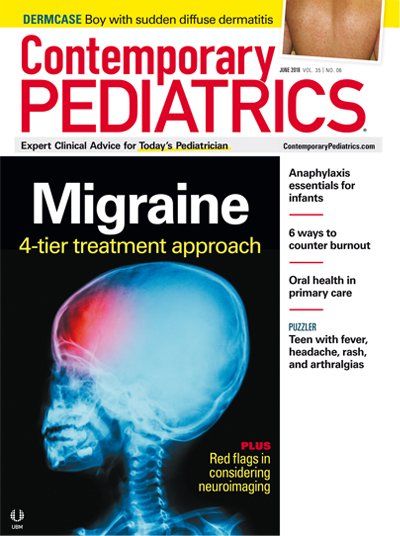Antibiotics or antacids in infancy may increase risk of allergy
Exposure to acid-suppressive medications or antibiotics in the first 6 months of life is associated with development of allergic disease, according to a retrospective study in more than 750,000 children from within 35 days of birth until aged at least 1 year.
Michael G Burke, MD

Exposure to acid-suppressive medications or antibiotics in the first 6 months of life is associated with development of allergic disease, according to a retrospective study in more than 750,000 children from within 35 days of birth until aged at least 1 year. Data for each child were available for a median of 4.6 years.
During the first 6 months of life, 7.6% of the study group were prescribed a histamine-2 receptor antagonist (H2RA), 1.7% a proton pump inhibitor (PPI), and 16.6% an antibiotic. The most commonly prescribed H2RA was ranitidine (95.1% of all such prescriptions), followed by nizatidine and famotidine. Lansoprazole was the PPI used most often (75.5% of total PPI prescriptions), and for antibiotics, penicillins were the medications of choice (65.3%).
Children who received H2RAs and PPIs were twice as likely as those who did not to develop food allergy (adjusted hazard ratios were 2.18 and 2.59, respectively). These children also had an elevated risk for medication allergy, anaphylaxis, allergic rhinitis, and asthma. Antibiotic prescriptions were associated with a doubling of risk for asthma, as well as increased risk for allergic rhinitis, anaphylaxis, and allergic conjunctivitis (Mitre E, et al. JAMA Pediatr. April 2, 2018. Epub ahead of print).
Thoughts from Dr. Burke
This evaluation of a very large data set adds to a growing body of literature linking antibiotic use and acid suppression to allergic disease. Although the reasons for this connection are not clear, one theory suggests that gastric acid suppression increases presentation of more intact proteins to the small intestine and the immune system. It may be that both antibiotics and alterations in acid secretion change the newly appreciated, but still poorly understood, gut microbiome.
